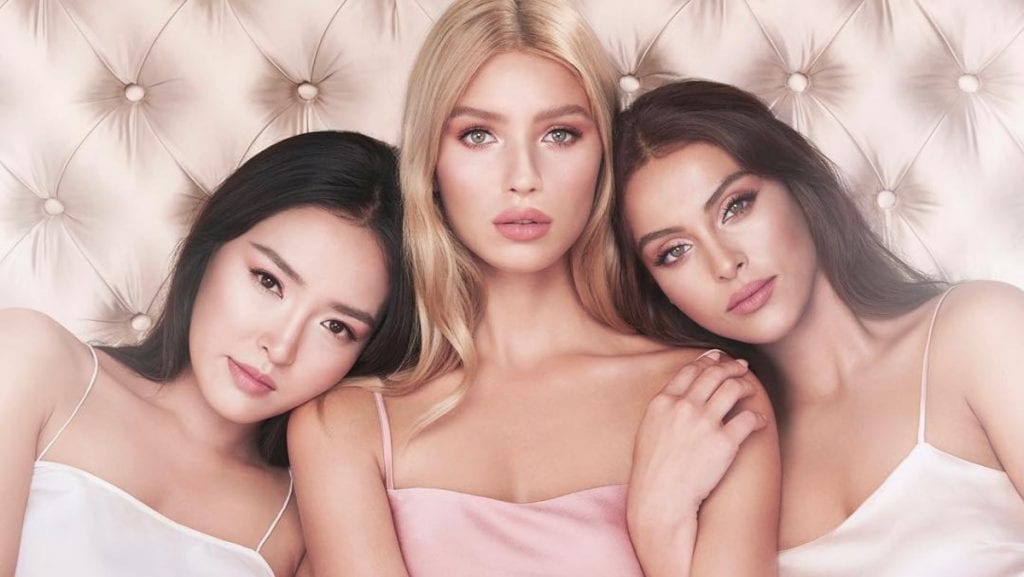The latest in budding beauty takeovers is seeing cosmetics giants like Unilever and Puig vying for the Charlotte Tilbury brand. L’Oreal, Estée Lauder Cos., and Japanese beauty company Shiseido have also made presumably sizable bids for Tilbury’s 7-year old company, months after the British-born makeup artist to the stars first reportedly received a $1 billion takeover offer from Estée Lauder Cos. this past summer. According to Bloomberg, the company could ultimately “fetch more than $1.2 billion” in the sale.
Founded in 2013, Charlotte Tilbury – which is known for its skincare products and matte lipsticks – has found fans in celebrities, consumers, and investors, alike, first raising an undisclosed sum in a 2014 funding round led by the Samos Investments and Venrex Investment Management in 2014, according to the PitchBook platform, followed by a similarly-undisclosed investment from venture capital firm Sequoia Capital in 2017.
The impending sale “comes at a time when big beauty companies have been on an acquisition spree, as they seek to court younger shoppers with upstart brands,” according to Bloomberg. It follows from Coty Inc.’s headline-making acquisition of a 51 percent stake in reality star-turned-makeup mogul Kylie Jenner’s Kylie Cosmetics for $600 in November, putting a cool $1.2 billion valuation on the 6-year old cosmetics startup.
That same month, Estée Lauder Cos. boosted its one-third stake in Have & Be Co., the South Korean skincare company that owns Dr. Jart+ cosmetics to assume full ownership, putting Have & Be Co.’s “total enterprise” valuation at approximately $1.7 billion. Also in November, private equity firm Advent International agreed to acquire prestige and professional hair care brand Olaplex, although the financial details of the transaction were not disclosed.
Meanwhile, a month prior, in October 2019, Japanese beauty conglomerate Shiseido acquired Drunk Elephant for $845 million, adding the “clean” skincare brand to its arsenal of brands, which includes Nars, Laura Mercier, and Bare Minerals, among others, in furtherance of its quest to expand its global presence.
Still yet, that summer, consumer goods giant Unilever – which owns Kate Sommerville, Murad, and Dermalogica – acquired California-based, Japan-developed skincare company Tatcha for a reported $500 million, and General Atlantic announced a “partnership and strategic growth investment” in Morphe Holdings. The latter saw the New York-based private equity firm acquire a majority stake in Morphe “alongside existing investor Summit Partners and co-founders Chris and Linda Tawil,” giving the influencer-driven beauty brand a valuation of more than $2.2 billion valuation.
Bloomberg notes that “a successful sale [of the Charlotte Tilbury brand] would show that large consumer companies still have an appetite to acquire independent brands despite the coronavirus pandemic, which has ended a decades-long boom in deals” following a particularly busy year for beauty M&A in 2019. Much of that activity was driven by “strategic acquisitions by larger players aiming to expand their scale and enhance capabilities to meet changing consumer preferences,” according to Ernst & Young, particularly as the industry “has been disrupted by the growth of direct-to-consumer channels such as e-commerce platforms and the use of social media to engage directly with consumers.”
In its January 2020 Personal Care M&A Overview Canada and US Market Insights report, EY further pointed to the “shift in consumer preferences” that the personal care market is experiencing, in much the same way as other consumer product segments. “Innovative start-ups are selling on trend natural, organic, clean and cruelty-free products, predominantly to millennial consumers, who are more informed and seek transparency in ingredients, packaging, sustainability and ethical sourcing,” leaving a lot of room for M&A activity by established names looking to bolster their roster of brands.
However, at least some of that deal-making has been put on hold, according to Reuters, with “German conglomerate Henkel and U.S. buyout fund KKR are holding off bidding for a portfolio of beauty brands that Coty is trying to sell as they fret over the fallout of the coronavirus pandemic.” The sale of the Coty-owned brands, which was expected to fetch about $7 billion earlier this year, has reportedly “hit a snag as hair salons and nail bars remain shut in most countries around the world.”













